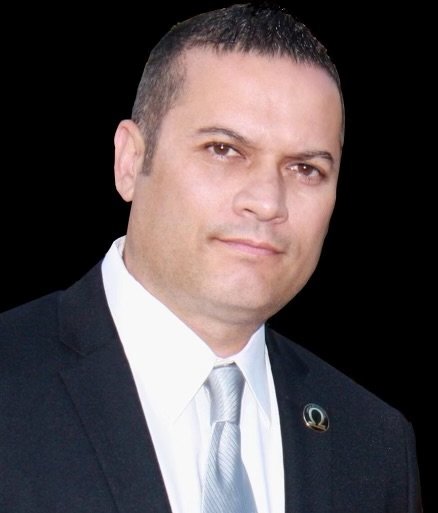Dealing with Difficult People
TIPS FOR DEFUSING TENSE SITUATIONS
By Cary Schultz
Mr. David Perez is the founder and CEO of OMEGA International Group Inc., a Beverly Hills-based private security firm renowned for its "Five Diamond" approach to protection, particularly within the Sports and Entertainment Industry, working with the NBA, NFL, and luxury hotel communities. With a distinguished background as a Veteran of the United States Marine Corps and experience in high-profile roles at the White House and Pentagon, David's leadership is grounded in discipline and strategic insight. His academic credentials, including a Bachelor's Degree in Criminal Justice and a Master’s Degree from the University of Southern California, complement his extensive field experience, making him a respected figure in the security sector. In an insightful dialogue on managing tense situations, David shares his expertise in conflict resolution, emphasizing calmness and active listening. Here's a closer look at his advice.
What is your primary strategy for calming tense situations?
The first thing one must do is to remain calm. Using clear and calm communication is key. Being an active listener is crucial. Let the person talk as much as they can . . . and then, of course, together, find a solution and resolve the issue.
How do you practice maintaining calm in daily life?
Since harnessing this skill is not easy, it's important to practice every day, like in traffic or while waiting in line at a store. If someone cuts you off or cuts in line, just let them go. You don't know what emergency that person is having that day. And as you practice that on a daily basis, you become better prepared when you actually have a tense situation – you're better equipped and self-trained to handle the situation.
What specific psychology tips and techniques can someone use?
Seek common ground, and redirect their thoughts to get out of that escalated state. One can redirect someone by saying something as simple as, “wow, I like your shirt or your shoes. Those are amazing shoes”, shifting the conversation to something positive. Definitely avoid telling someone to "calm down," as it usually has the opposite effect. Instead, use phrases like "it seems like" to soften the approach and encourage the other person to share more about their feelings and then redirect them to a positive state of thought.
How do you train corporate teams and hotel staff in managing confrontations?
It mainly involves teaching one to master universal persuasion techniques by using and choosing your words wisely. We also focus on Conflict Resolution, understanding your body language, which has to match your words, and being fully self-aware of your words, tones, and actions.
What nonverbal elements are important in preventing conflict?
Body language is about 55% of our nonverbal communication. Your facial expressions and body language play a crucial role. It will be a contradiction if they don’t match what you’re saying to somebody. It’s a good idea to smile, keep your arms open, palms up while speaking, and maintain a soft, approachable demeanor.
How do you ensure your approach works universally across different cultures and languages?
I can tell you from experience that even though you may not speak the language, being polite, respectful, and showing empathy towards others is universal in any language or culture.
What are some early signs of potential trouble to look out for?
We teach to observe body language and environmental tension, such as a group's unusual standing in a seated area, which could signal unrest. Aggressive verbal cues and deviations from the norm, like the example of people arguing and not sitting in a restaurant, are critical indicators that may suggest an escalation is imminent. Trust your intuition and gut feeling and take action, such as leaving the area.
How do you handle situations involving individuals with mental health issues?
Empathy and compassion are key, alongside prioritizing immediate safety. Always ask if they are with someone to help assist with the situation. For those in crisis, understanding and practical assistance are essential, sometimes necessitating emergency services to ensure they receive the appropriate care and support.
How do you see technology changing how we keep things safe and calm in the future?
Advanced AI technology and the rise of self-driving cars will significantly reduce human stress and confrontation, such as road rage incidents. AI-driven solutions, including emergency alert apps and mental health support tools, will enhance public safety through early threat detection and provide more accessible help. The future use of facial and eye retina recognition technologies will also enhance public safety by providing reliable identification methods.

